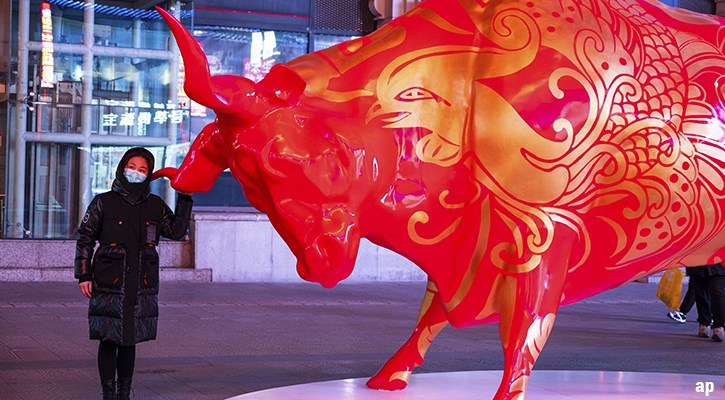
For the past five years, the value approach to stock-picking in emerging markets has lagged the growth approach. That has made it challenging for value-oriented stock pickers such as Gerardo Zamorano, who helps to oversee the 3-star rated $291.2 million Brandes Emerging Markets Value Class F. Yet Zamorano is confident that his team at San Diego-based Brandes Investment Partners will be vindicated as the value style comes back into favour.
“When you look at the benchmark MSCI Emerging Markets Growth Index its return over the last five years has been extremely concentrated,” says Zamorano, Director, Investments Group, a 24-year industry veteran who joined Brandes in 1999. “Essentially two companies, Alibaba (BABA) and the combination of Tencent (00700) and Naspers (NNWN) [whose main value is shares in Tencent], have accounted for two-thirds of the index’s return over the last five years. More than 100% of the index’s return came from the five largest companies in the EM index. This is a story of concentrated performance by a handful of companies that have grown so much and are such a big part of the benchmark that they overwhelm the other companies [in the benchmark].
“Five years ago we were not able to own those stocks—each of which is 3-4% of the benchmark and a big part of the return----that made it very challenging for a value manager,” says Zamorano, who shares portfolio management duties with Christopher Garrett, Louis Lau and Mauricio Abadia.
From a performance standpoint, Brandes Emerging Markets Value Class F returned 9.21% return year-to-date (Nov. 20), compared to 8.61% for the Morningstar EM Growth Index (C$). On a five year basis, the fund averaged 4.86%, versus 7.81% for the growth index.
Big companies looking brittle
Still, Zamorano argues there are some cracks appearing in once-invincible companies, which suggests the tide may be turning. “If you look at shares of Alibaba, they have been up and down and are now where they were two years ago,” says Zamorano, a native of Mexico, who earned an MBA in 1999 from the Kellogg School of Business at Northwestern University in Chicago. “And there are companies that we believe have good business models that are more accessible if you are in the value camp. The question is, will the return of the index going forward be so concentrated as it has been over the last five years? We believe it will not be, and that bodes well for value.”
Indeed, Zamorano maintains that history goes in cycles. That is, value outperformed in the decade 2000 to 2010, followed by the decade 2010 to the present when growth has outperformed. “The question is, what lies ahead? The gap between value and growth is the widest we have ever seen. When you look at the constituents that helped growth stocks, these are companies that are now slowing down,” says Zamorano, adding that in the past five years the discount between growth and value has widened from around 20-25% to 40-45%, “You are getting into the law of large numbers. How easy it will be for a company worth US$450 billion to generate another 200% return, compared to the prior five year period?”
Bottom-up managers and somewhat contrarian in outlook, Brandes and his team have focused on stocks in Brazil, for example, which Zamorano admits initially hurt performance. “We are very sensitive to the price that we pay for securities. The two main questions we ask ourselves when investing in a company, are: how much is this business worth and how much of a discount to the market is it trading at? That’s how we make our portfolio decisions,” says Zamorano. “These valuation metrics will eventually lead to some outperformance by EM. In the meantime, the dividend yield in aggregate is 4%. We are getting paid to wait.”
Time to cash out on Brazil
Yet he maintains that country bet has already paid off and he’s begun to reduce the exposure from over 20% of the portfolio to 13.5%. In contrast, Brazil accounts for 7.5% of the benchmark MSCI Value Index. “Many of the companies that we own are performing well and trading at a much closer level to fair value,” says Zamorano, adding that the portfolio once included several Brazilian banks, telecom firms and industrial firms. “But as the economy looked better and the political landscape changed and reforms were enacted, the market’s perception of risk began to change. That brought the country risk down and more optimism into the price of securities. Many reached fair value and we began to sell them.”
Running a portfolio of about 70 names, Zamorano continues to favour Brazilian companies such as Embraer SA, a leading aerospace firm (the stock is held as an American Depository Receipt.) One of the key reasons behind the holding is that there is an offer from Boeing Co. (BA) for 80% of Embraer’s commercial jet business.
“In addition to a cash payment from Boeing, they will still own 20% of the commercial jet business that is not for sale, plus increasing business in the defence sector, and the private jet business. We are very optimistic that once the transaction gets done, probably in the first quarter of 2020, there will be a significant return of capital to shareholders in the way of an extraordinary dividend,” says Zamorano. “When analysts look at the remaining company, they will realize the value is higher than today’s price. At the same time, the association with Boeing will mean that it be helping Embraer sell some of their planes on the defence side.”
Casinos are next big bets
Meanwhile, the team has been loading up on Chinese stocks, which combined with Hong Kong names, accounts for 20% of the portfolio. One representative name is Wynn Macau Ltd. (01128), which operates luxury casinos in Macau. “The company is trading at more than one standard deviation below its historical levels. It’s also been traded down because some investors are concerned about revenue from VIP gamblers,” says Zamorano, referring to gamblers who typically spend above US$50,000 each visit. The concerns derive from several factors, one of them being the U.S.-China trade war undermining consumer confidence as well as worries about the renewal of the gambling concession by U.S.-based Wynn Resorts Ltd. (WYNN).
“In our view, there is only a remote chance of it being not renewed. The reason is the concession is separate from the property rights,” says Zamorano. “In the event the gambling concession is not renewed, Wynn Macau still owns the building and hotel rooms. It would be very complicated for Macau if an interested party had to negotiate with Wynn to use the building. It’s in Macau’s own interest to keep the gambling concession tied to the infrastructure supporting it.”
In the meantime, the stock generates a 10% free cash flow yield. “There is a lot of cash flow. But the market is not giving credit to Wynn Macau’s recent expansion, which gives them more capacity. What gives us confidence is that the VIP gambler only accounts for about one-fifth of the firm’s profit. There is a little bit of a ‘disconnect’ between the revenue contribution of the VIP gambler that is causing concerns, and the actual impact on EBITDA [earnings before interest taxes depreciation and amortization] which is much less. Even so, wealth is growing in China and Macau will continue to be an attractive location for VIP and middle-income gamblers.”





















